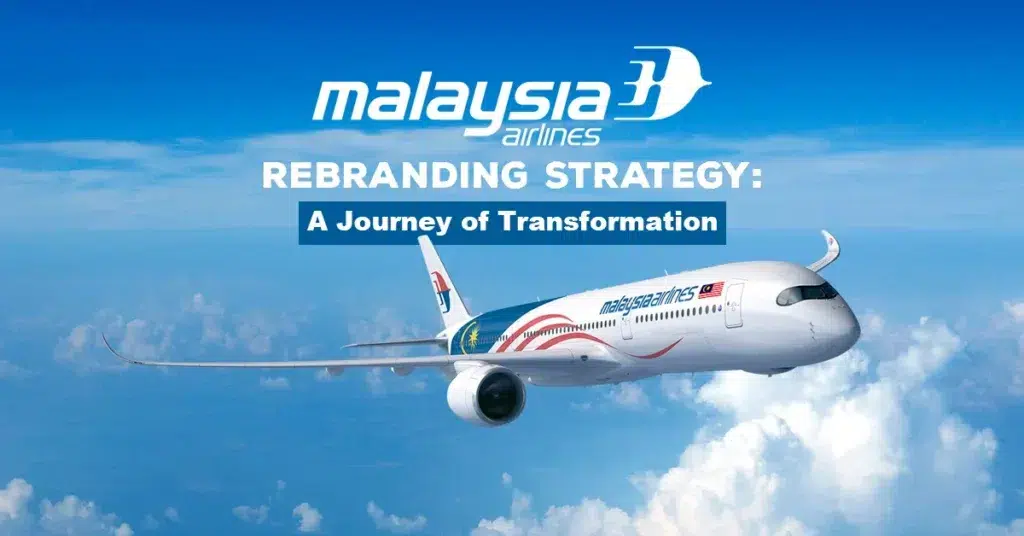
Malaysia Airlines has a rich history marked by challenges that have shaped its journey. The introduction of the Malaysia Airlines rebranding strategy signifies a pivotal moment for the airline. Malaysia Airlines’ journey began with its first commercial flight in 1947, operated by Malayan Airways Limited. This blog aims to delve into the transformation process, offering insights into the strategic decisions and shifts undertaken by Malaysia Airlines rebranding strategy.
Malaysia Airlines Rebranding Strategy
Overview of the Strategy
The Malaysia Airlines rebranding strategy is a meticulous plan designed to propel the airline into a new era of success, emphasizing the premium travel experience with luxurious business class cabin amenities such as spacious seating, fine dining services, and exclusive options like the Chef on Call Service. With clear key objectives in mind, the airline aims to redefine its identity and strengthen its position in the competitive aviation industry. By focusing on enhancing customer experience and operational efficiency, Malaysia Airlines seeks to establish itself as a premier choice for travellers worldwide.
Key Objectives
Elevate Customer Experience: By prioritising passenger comfort and satisfaction, Malaysia Airlines aims to set new standards for service excellence.
Drive Operational Efficiency: Streamlining processes and optimising resources are central to the airline’s objectives, ensuring sustainable growth and profitability.
Foster Innovation: Embracing technological advancements and modern solutions, Malaysia Airlines is committed to staying ahead of industry trends.
Expected Outcomes
Enhanced Brand Recognition: Through strategic initiatives and targeted campaigns, Malaysia Airlines anticipates increased visibility and brand awareness.
Improved Customer Loyalty: By delivering exceptional services and personalised experiences, the airline aims to cultivate lasting relationships with its passengers.
Sustainable Growth Trajectory: With a focus on long-term success, Malaysia Airlines envisions steady expansion and market dominance.
Importance of Rebranding
In today’s dynamic business landscape, building trust is paramount for any organisation seeking sustained success. For Malaysia Airlines, rebranding represents more than just a cosmetic makeover; it signifies a commitment to transparency, reliability, and accountability.
By prioritising enhancing brand image, the airline demonstrates its dedication to meeting evolving consumer expectations and industry standards.
Building Trust: Establishing credibility and fostering confidence among passengers are core objectives of Malaysia Airlines’ rebranding efforts. Through consistent delivery of quality services and adherence to safety protocols, the airline aims to earn the trust of discerning travellers.
Enhancing Brand Image: A strong brand identity is essential for standing out in a crowded marketplace. Malaysia Airlines’ rebranding strategy focuses on creating a compelling brand narrative that resonates with customers across diverse demographics.

Rationale Behind the Rebranding
Historical Context
The decision to embark on the Malaysia Airlines rebranding strategy was deeply influenced by the airline’s tumultuous past. Following previous incidents that garnered global attention and scrutiny, Malaysia Airlines faced a significant challenge in restoring its tarnished reputation. The tragic events not only had a profound impact on reputation but also underscored the urgent need for a comprehensive transformation. Malaysia Airlines flew its first commercial flight in 1947.
Amidst public outcry and media scrutiny, Malaysia Airlines recognized the imperative to address underlying issues that had compromised its standing in the aviation industry. The company’ evolution from Malayan Airways Limited to Malaysia Singapore Airlines, and then to Malaysian Airline System, marked significant milestones in its history.
The incidents served as a wake-up call, prompting the airline to reevaluate its operational protocols and crisis management strategies to prevent future mishaps. The rebranding to Malaysian Airways was significant in connecting Malaysia globally.
A thorough market analysis revealed crucial insights into shifting consumer preferences and competitive dynamics within the aviation sector. Malaysia Airlines identified emerging trends and evolving market demands that necessitated strategic realignment. Additionally, direct customer feedback played a pivotal role in shaping the rebranding initiative, providing valuable perspectives from passengers and stakeholders.
By analysing market trends and competitor strategies, Malaysia Airlines gained valuable intelligence to inform its rebranding roadmap.
Customer feedback served as a compass guiding the airline towards enhancing service offerings, improving customer satisfaction levels, and rebuilding trust among travellers.
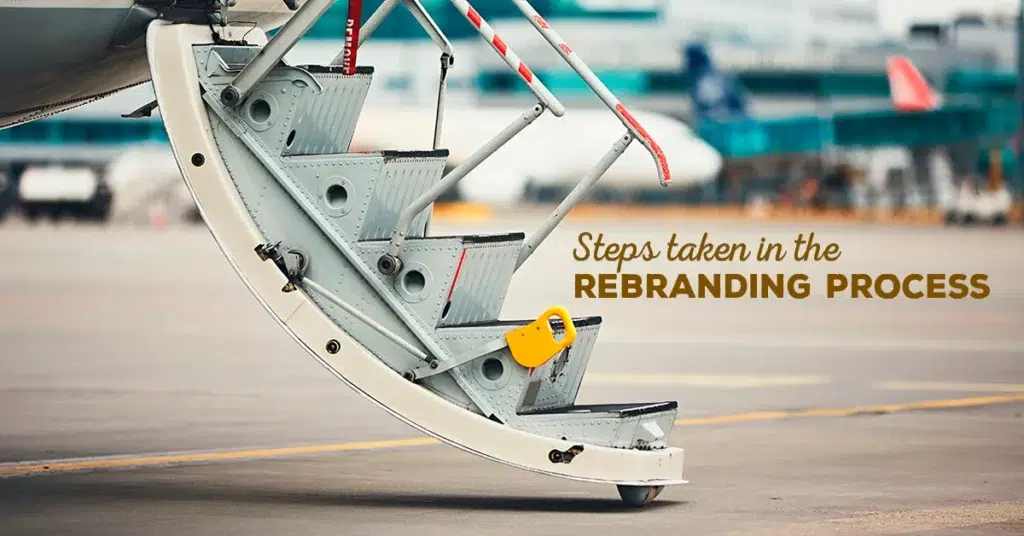
Steps Taken in the Rebranding Process
Internal Changes
Cultural Shift
Malaysia Airlines recognized the significance of fostering a cultural shift within the organisation to align the company with its rebranding objectives. By instilling a culture of excellence and innovation, the airline aimed to cultivate a workforce dedicated to delivering unparalleled service quality and operational efficiency.
Implementing training programs focused on customer-centric practices and professional development.
Encouraging open communication channels to foster collaboration and idea-sharing among employees.
Recognizing and rewarding staff members who embody the values and ethos of the rebranded Malaysia Airlines.
Operational Overhaul
An operational overhaul was imperative for Malaysia Airlines to streamline processes, enhance productivity, and ensure seamless service delivery. By optimising internal workflows and resource allocation, the airline sought to achieve sustainable growth and profitability while maintaining high safety standards.
Restructuring operational procedures to eliminate redundancies and improve overall efficiency.
Investing in advanced technologies and systems to modernise key operational functions.
Conducting regular performance assessments to identify areas for improvement and address operational bottlenecks.
External Changes
Visual Identity
The visual identity of Malaysia Airlines underwent a comprehensive transformation as part of its rebranding strategy. From logo redesigns to aircraft livery updates, every visual element was carefully crafted to reflect the airline’s new brand positioning and values.
Collaborating with renowned design agencies to develop a fresh, contemporary brand aesthetic that resonates with modern consumers.
Introducing vibrant colour schemes and dynamic visual elements across various touchpoints to create a cohesive brand experience.
Unveiling a visually striking logo that symbolises Malaysia Airlines’ commitment to excellence, safety, and customer satisfaction.
Marketing Campaigns
In parallel with internal changes, Malaysia Airlines launched innovative marketing campaigns aimed at engaging customers, building brand awareness, and driving loyalty. Through targeted digital initiatives and strategic partnerships, the airline sought to position itself as a preferred choice for travellers worldwide. As the official global airline partner of Liverpool Football Club, Malaysia Airlines provides exposure to young Malaysian players through soccer clinics and professional coaching, enhancing its brand visibility among large fan bases, particularly in Southeast Asia and China.
Leveraging social media platforms to amplify brand messaging and interact with customers in real-time.
Collaborating with influencers and travel bloggers to showcase unique travel experiences offered by Malaysia Airlines.
Offering exclusive promotions and discounts through online channels to attract new customers and retain existing ones.
Brand Revitalization
Enhancing the Customer Experience
Customer-Centric Innovations
Malaysia Airlines has introduced a suite of customer-centric innovations designed to elevate the overall travel experience. One of the standout features is the new mobile app, which empowers passengers to book flights, check-in, and access their boarding passes with ease. This app is a game-changer for frequent flyers and tech-savvy travellers, offering a seamless and efficient way to manage their journeys. Additionally, the airline has rolled out a self-service kiosk system at Kuala Lumpur International Airport, allowing passengers to print their boarding passes and baggage tags swiftly. These innovations are part of Malaysia Airlines’ commitment to reducing wait times and enhancing convenience for its passengers, ensuring a smoother travel process from start to finish.
Service Enhancements
In its quest to provide a more personalized and comfortable experience, Malaysia Airlines has made significant strides in enhancing its service quality. The introduction of a new in-flight meal service is a testament to this commitment, offering passengers a variety of delicious and healthy meal options tailored to diverse tastes. Furthermore, the airline has revamped its cabin crew training program, ensuring that staff are well-equipped to deliver exceptional service. This focus on service quality has not gone unnoticed, earning Malaysia Airlines numerous awards, accolades and recognition within the aviation industry. By prioritizing passenger comfort and satisfaction, the airline continues to set new benchmarks for service excellence.
Malaysia Aviation Group’s Role
Strategic Oversight
As the parent company of Malaysia Airlines, Malaysia Aviation Group (MAG) plays a pivotal role in steering the airline towards success. MAG’s primary objective is to ensure that Malaysia Airlines operates with utmost efficiency and effectiveness, all while maintaining its unwavering commitment to service quality and customer satisfaction. To achieve this, MAG collaborates closely with the airline’s management team to develop and implement strategic plans, monitor performance, and identify areas for improvement. This strategic oversight is crucial in enabling Malaysia Airlines to stay competitive in the aviation industry and uphold its reputation as a leading carrier in the region. Through its guidance and support, MAG ensures that Malaysia Airlines continues to thrive and deliver exceptional travel experiences to its passengers.

Outcomes of the Rebranding Strategy
Financial Performance
Revenue Growth
Malaysia Airlines witnessed a remarkable surge in revenue growth following the implementation of its comprehensive rebranding strategy. The strategic realignment of operational processes and customer-centric initiatives propelled the airline towards unprecedented financial success. By prioritising service excellence and innovation, Malaysia Airlines effectively expanded its revenue streams and solidified its position in the competitive aviation market.
Introducing new service offerings and personalised experiences to attract a broader customer base.
Enhancing operational efficiency through streamlined processes and resource optimization.
Leveraging digital platforms to drive online sales and engage with customers in real-time.
Profit Margins
The profit margins of Malaysia Airlines experienced a notable upswing as a direct result of the rebranding efforts. By focusing on sustainable growth trajectories and cost-effective strategies, the airline achieved significant profitability while maintaining high standards of service quality. Through prudent financial management and strategic investments, Malaysia Airlines successfully enhanced its profit margins and secured a stable financial outlook for the future.
Implementing cost-saving measures without compromising on service standards.
Diversifying revenue streams through strategic partnerships and innovative marketing campaigns.
Monitoring financial performance closely to identify opportunities for further optimization.
Customer Perception
Trust Rebuilding
Rebuilding trust with passengers was a fundamental objective of Malaysia Airlines’ rebranding strategy, which yielded positive outcomes in terms of customer perception. By prioritising safety, reliability, and transparency, the airline successfully restored confidence among travellers who had previously hesitated to choose Malaysia Airlines as their preferred carrier. Through consistent communication, exceptional service delivery, and adherence to stringent safety protocols, Malaysia Airlines rebuilt trust with its customers, fostering long-lasting relationships built on mutual respect and integrity.
Communicating openly about safety measures and operational improvements to reassure passengers.
Implementing rigorous safety protocols and training programs to uphold industry-leading standards.
Engaging with customers proactively to address concerns, gather feedback, and enhance overall satisfaction levels.
Brand Loyalty
The rebranding strategy implemented by Malaysia Airlines also had a profound impact on brand loyalty, with passengers demonstrating increased affinity towards the airline’s revitalised brand identity. By delivering memorable travel experiences, personalised services, and exclusive benefits to loyal customers, Malaysia Airlines cultivated a dedicated following that transcended mere transactional relationships. The inflight entertainment system features special content highlighting Malaysian culture and heroes, showcasing the airline’s commitment to providing a unique and culturally rich journey for travelers. Through targeted loyalty programs, special promotions, and tailored offerings based on customer preferences, Malaysia Airlines fostered brand loyalty that extended beyond individual transactions to encompass enduring emotional connections with its audience.
Offering exclusive rewards and privileges to frequent flyers as part of loyalty programs.
Personalising interactions with customers through data-driven insights and behavioural analytics.
Creating memorable touchpoints throughout the customer journey to enhance brand recall value.
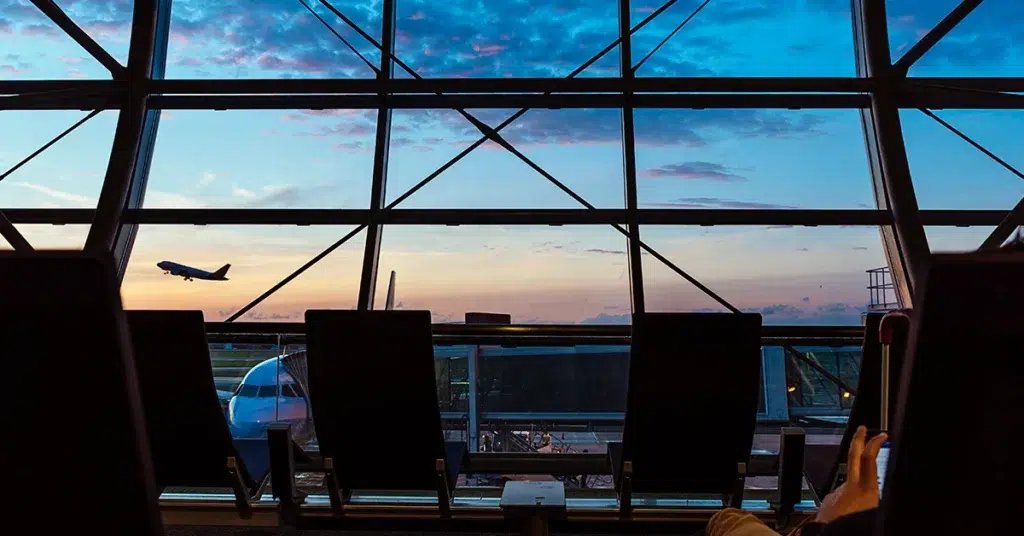
TIME and Effort Invested
Duration of the Rebranding
Planning Phase
The planning phase of the Malaysia Airlines rebranding strategy was a meticulous process that involved strategic analysis, stakeholder consultations, and goal setting. It encompassed a comprehensive review of market trends, competitor strategies, and consumer preferences to inform the development of a robust rebranding roadmap. During this phase, key milestones were established, timelines were defined, and resource requirements were identified to ensure seamless execution. The planning phase laid the foundation for subsequent initiatives and provided a clear direction for the transformation journey ahead.
Implementation Phase
The implementation phase marked the actualization of Malaysia Airlines’ rebranding vision into tangible outcomes. It involved the execution of internal and external changes outlined in the strategic roadmap, including cultural shifts, operational overhauls, visual identity updates, and marketing campaigns. The implementation phase required close coordination among cross-functional teams, effective communication channels, and continuous monitoring of progress against predefined metrics. By aligning actions with objectives and adapting to evolving circumstances, Malaysia Airlines successfully navigated through the challenges of transformation and emerged stronger than ever before.
Resource Allocation
Financial Investment
Financial investment played a pivotal role in supporting Malaysia Airlines’ rebranding endeavours. The airline allocated substantial resources towards technology upgrades, staff training programs, marketing initiatives, and customer experience enhancements to drive sustainable growth and profitability. By prioritising prudent financial management practices and strategic investments in key areas, Malaysia Airlines ensured optimal utilisation of resources while maximising returns on investment. The financial commitment demonstrated the airline’s dedication to long-term success and its unwavering focus on delivering value to stakeholders.
Human Resources
Human resources were instrumental in shaping the success of Malaysia Airlines’ rebranding strategy. The airline recognized the importance of its workforce in driving organisational change and fostering a culture of excellence. Through targeted training programs, talent development initiatives, and performance recognition schemes, Malaysia Airlines empowered its employees to embrace innovation, deliver exceptional service quality, and uphold brand values. By investing in human capital development and nurturing a supportive work environment, Malaysia Airlines cultivated a motivated workforce that was aligned with its strategic objectives.
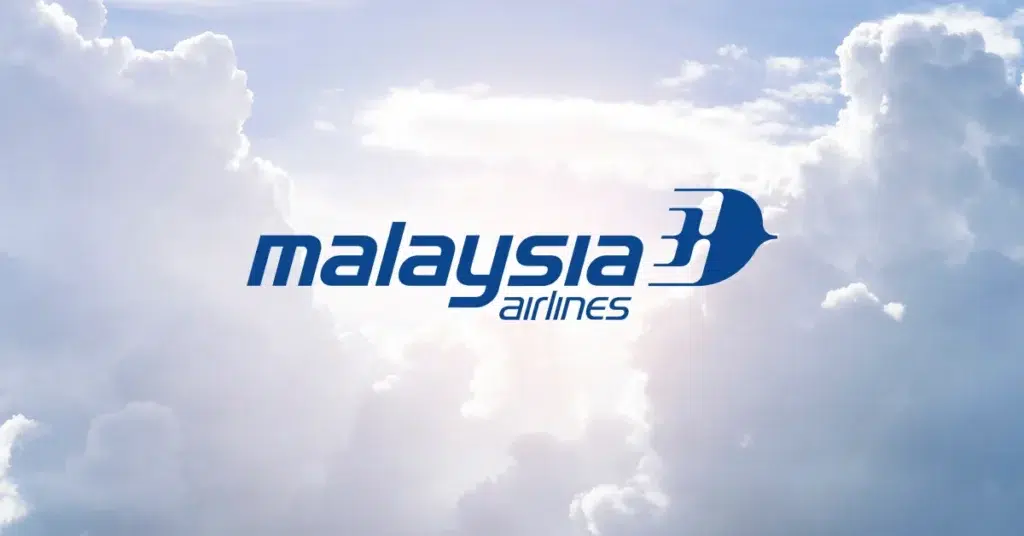
Sign of a New Beginning
Symbolic Changes
New Logo
The unveiling of a bold new logo symbolises Malaysia Airlines’ commitment to innovation and excellence. The redesigned emblem encapsulates the airline’s renewed vision and values, reflecting a modern aesthetic that resonates with today’s discerning travellers. By embracing a contemporary design language and vibrant colour palette, the new logo serves as a visual representation of Malaysia Airlines’ transformation journey. It embodies the spirit of progress, resilience, and customer-centricity that define the airline’s brand identity.
Embracing a minimalist approach, the new logo features clean lines and geometric shapes that convey sophistication and elegance.
Incorporating elements inspired by Malaysia’s rich cultural heritage, the logo pays homage to the airline’s roots while projecting a forward-thinking outlook.
Leveraging cutting-edge design principles and digital technologies, the new logo captures attention and conveys a sense of dynamism and vitality.
New Slogan
A compelling new slogan accompanies Malaysia Airlines’ rebranding initiative, encapsulating its core values and service ethos in a succinct phrase. The carefully crafted tagline communicates the airline’s brand promise to passengers worldwide, setting expectations for exceptional experiences and unparalleled service quality. By distilling its brand essence into a memorable slogan, Malaysia Airlines aims to forge emotional connections with customers and differentiate itself in a competitive market landscape.
The new slogan embodies Malaysia Airlines’ commitment to safety, reliability, and customer satisfaction, reinforcing its position as a trusted aviation partner.
Through evocative language and impactful messaging, the slogan resonates with diverse audiences and conveys a sense of purpose and authenticity.
By aligning with contemporary marketing trends and consumer preferences, the new slogan positions Malaysia Airlines as a forward-looking industry leader dedicated to passenger well-being.
Strategic Shifts
Market Positioning
Strategic shifts in market positioning have enabled Malaysia Airlines to carve out a distinctive niche in the global aviation sector. By redefining its target audience segments and value propositions, the airline has strategically positioned itself for sustainable growth and long-term success. Through targeted market research initiatives and competitive analysis studies, Malaysia Airlines identified untapped market opportunities and emerging travel trends that informed its strategic realignment efforts. Malaysia Airlines operates flights to various regions, including South Asia and Southeast Asia.
Focusing on premium long-haul travel segments, Malaysia Airlines aims to attract high-value customers seeking luxury amenities and personalised services.
Leveraging data-driven insights from social media analytics platforms, Malaysia Airlines tailors its marketing strategies to resonate with tech-savvy travellers who value convenience and connectivity.
By differentiating itself through unique selling points such as superior in-flight entertainment options, Malaysia Airlines establishes itself as an industry innovator setting new standards for passenger comfort.
Service Offerings
Innovative enhancements in service offerings have positioned Malaysia Airlines as an industry trailblazer committed to delivering unparalleled travel experiences. From inflight dining options to cabin amenities, every aspect of passenger engagement has been meticulously curated to exceed customer expectations. By investing in cutting-edge technologies, training programs, and service excellence initiatives, Malaysia Airlines elevates its service standards across all touchpoints throughout the passenger journey.
Introducing personalised concierge services for premium passengers, Malaysia Airlines creates bespoke travel experiences that cater to individual preferences.
Enhancing cabin configurations with ergonomic seating layouts, advanced entertainment systems, and ambient lighting settings, Malaysia Airlines transforms ordinary flights into extraordinary journeys.
Collaborating with renowned chefs, designers, and hospitality experts, Malaysia Airlines offers gastronomic delights, luxurious amenities, and exclusive partnerships that elevate the inflight experience.

Management's Role in the Transformation
Leadership Vision
CEO's Perspective
The CEO of Malaysia Airlines plays a pivotal role in steering the transformation journey towards success. With a visionary outlook and unwavering commitment to excellence, the CEO sets the tone for organisational change and inspires teams to embrace innovation. By championing a culture of continuous improvement and customer-centricity, the CEO reinforces Malaysia Airlines’ position as an industry leader dedicated to service excellence and operational efficiency.
Setting strategic goals and performance benchmarks to drive sustainable growth and profitability.
Communicating the vision and values of Malaysia Airlines rebranding strategy to employees, stakeholders, and customers.
Leading by example through decisive actions, transparent communication, and ethical leadership practices.
Management Team's Role
The management team at Malaysia Airlines plays a crucial role in translating strategic objectives into tangible outcomes. By aligning departmental goals with overarching business priorities, the management team ensures seamless execution of rebranding initiatives and operational enhancements. Through effective coordination, collaboration, and resource allocation, Malaysia Airlines’ management team drives organisational change and fosters a culture of accountability and performance excellence.
Overseeing day-to-day operations and monitoring key performance indicators to track progress against targets.
Providing guidance, support, and mentorship to employees at all levels to enhance productivity and engagement.
Implementing feedback mechanisms and performance evaluation frameworks to continuously improve processes and outcomes.
Execution Strategy
Planning and Coordination
Effective planning is essential for the successful execution of Malaysia Airlines rebranding strategy. By developing detailed roadmaps, timelines, and resource plans, the airline ensures that each initiative aligns with strategic objectives. Through cross-functional collaboration, stakeholder consultations, and risk assessments, Malaysia Airlines minimises potential disruptions while maximising opportunities for growth.
Defining clear roles, responsibilities, and deliverables for each phase of the rebranding process.
Establishing communication channels, escalation protocols, and decision-making frameworks to facilitate smooth coordination among teams.
Conducting regular progress reviews, milestone evaluations, and post-mortem analyses to identify lessons learned and best practices for future initiatives.
Monitoring and Evaluation
Continuous monitoring is critical for assessing the impact of Malaysia Airlines’ rebranding strategy on key performance metrics. By tracking financial indicators, customer satisfaction scores, and brand perception indices, the airline gains valuable insights into the effectiveness of its transformation efforts. Malaysia Airlines Berhad is the legal entity and flag carrier of Malaysia, emphasizing its role within the Malaysia Aviation Group. Through data-driven evaluations, trend analyses, and benchmark comparisons, Malaysia Airlines identifies areas for improvement while capitalising on strengths to drive sustainable growth.
Implementing real-time dashboards, KPI scorecards, and performance heatmaps to visualise progress against targets.
Conducting regular surveys, focus groups, and sentiment analyses to gather qualitative feedback from customers.
Leveraging social media analytics tools to monitor online conversations, sentiment trends, and brand mentions.

Safety and Risk Management
Enhancing Safety Protocols
New Safety Measures
Ensuring passenger safety is a top priority for Malaysia Airlines. The implementation of new safety measures reflects the airline’s commitment to providing a secure and reliable travel experience for all passengers. By investing in state-of-the-art technologies and rigorous safety protocols, Malaysia Airlines upholds the world the highest standards of aviation safety.
Introducing advanced safety equipment and systems to enhance onboard security and emergency preparedness.
Conducting regular safety audits and inspections to identify potential risks and mitigate operational hazards.
Providing specialised training programs for flight crew members and ground staff to respond effectively to emergencies.
Risk Mitigation
Risk Assessment
Conducting thorough risk assessments is essential for preemptively identifying potential threats and vulnerabilities within the aviation environment. By analysing the aircraft, internal processes, external factors, and industry trends, Malaysia Airlines proactively evaluates risks to ensure proactive risk management strategies are in place.
Collaborating with industry experts and regulatory authorities to assess emerging risks and compliance requirements.
Implementing risk assessment frameworks that prioritise safety, security, and operational resilience.
Utilising data analytics and predictive modelling tools to forecast potential risks and develop mitigation strategies.
Contingency Plans
Developing robust contingency plans is crucial for responding effectively to unforeseen events or crisis situations. Malaysia Airlines has established comprehensive contingency plans that outline clear procedures, communication protocols, and response mechanisms in the event of emergencies.
Designating dedicated crisis management teams responsible for coordinating emergency responses across all operational levels.
Establishing communication channels with relevant stakeholders, government agencies, and media outlets to disseminate accurate information during crises.
Conducting regular drills, simulations, and scenario-based training exercises to test the effectiveness of contingency plans.
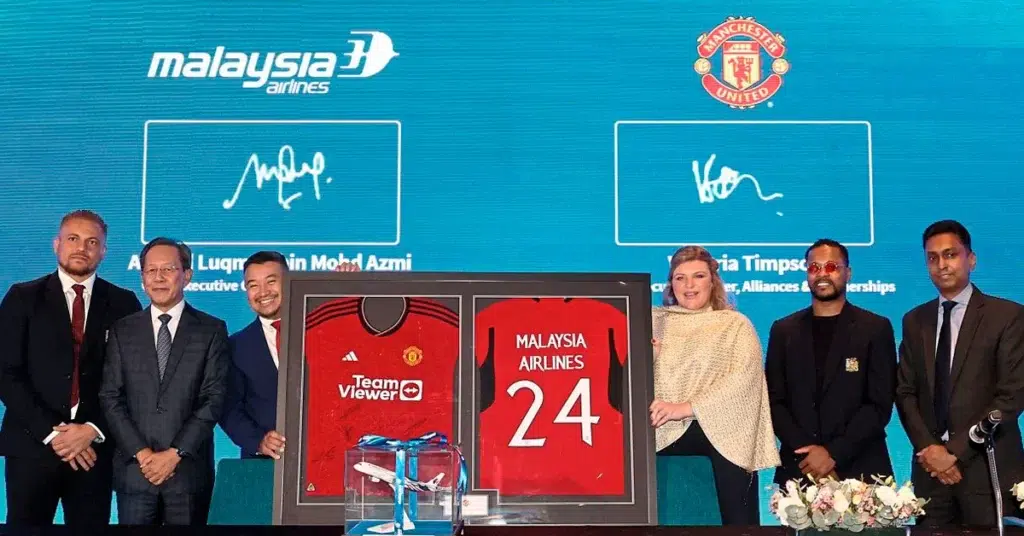
Official Global Airline Partner with Manchester United
Strategic Collaboration
Malaysia Airlines forged a strategic collaboration with Manchester United, one of the most iconic football clubs globally, to leverage the power of sports marketing and enhance its brand visibility. The partnership between these two esteemed entities aimed to achieve mutual partnership goals that encompassed brand promotion, fan engagement, and community outreach. By aligning their business suite their values and aspirations, Malaysia Airlines and Manchester United embarked on a journey to create memorable experiences for their audiences.
Establishing a strong presence in key markets through co-branded initiatives and promotional campaigns.
Engaging with fans through exclusive events, contests, and interactive experiences.
Supporting local communities through charitable endeavours and social responsibility programs.
Marketing Synergies
The collaboration between Malaysia Airlines and Manchester United unlocked powerful Marketing Synergies, enabling both brands to reach new audiences and strengthen their market positions. By combining their resources, expertise, and influence, the partners created innovative marketing strategies that resonated with fans, travellers, and sports enthusiasts worldwide. Through joint advertising campaigns, sponsorships, and digital activations, Malaysia Airlines and Manchester United maximised their brand exposure while delivering compelling narratives that captivated audiences.
Leveraging social media platforms to amplify brand messaging and engage with diverse demographics.
Creating immersive brand experiences through experiential marketing events and product launches.
Developing customised content collaborations that showcased the shared values of both brands.
Impact on Brand Image
The partnership with Manchester United had a transformative impact on Malaysia Airlines’ Global Reach, expanding its market presence across continents. By associating with a globally recognized sports franchise like Manchester United, Malaysia Airlines enhanced its credibility as an international carrier trusted by millions of fans around the world. The collaboration facilitated cross-promotional opportunities that elevated both brands’ visibility in key markets while fostering a sense of camaraderie among supporters.
Global Reach
Positioning itself as a preferred choice for global travellers, Malaysia Airlines leveraged its partnership with Manchester United to extend its reach into new territories. Through targeted marketing campaigns, sponsorships, and customer engagement initiatives, the airline solidified its position as a leading player in the aviation industry. By tapping into Manchester United’s vast fan base, Malaysia Airlines gained access to diverse audiences seeking premium travel experiences characterised by luxury, comfort, and exceptional service quality.
Fan Engagement
Engaging fans was at the heart of Malaysia Airlines’ collaboration with Manchester United. By creating memorable experiences for supporters, organising meet-and-greet sessions, and hosting exclusive events, the airline fostered deeper connections with football enthusiasts worldwide. The partnership enabled Malaysia Airlines to interact directly with fans through interactive content, behind-the-scenes access, and VIP privileges that enhanced their overall travel experience. Through fan-centric initiatives, Malaysia Airlines strengthened its brand loyalty while cultivating lasting relationships built on shared passion for sports and adventure.
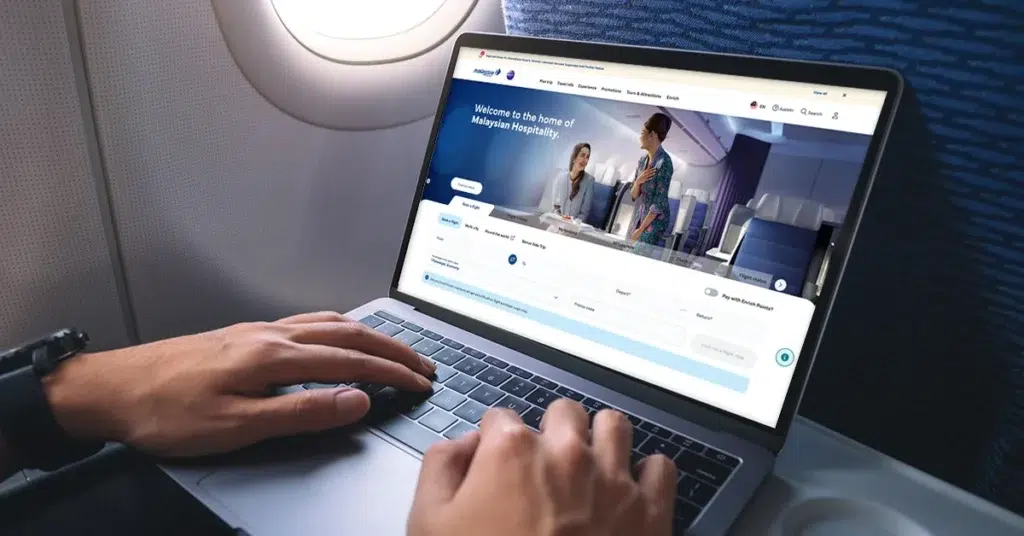
New Website User Experience Design
Design Philosophy
Malaysia Airlines’ commitment to excellence extends to its online presence, asia is where the Malaysia Airlines rebranding strategy comes to life through a User-Centric Approach. The design philosophy behind the new website focuses on creating an immersive digital experience that resonates with passengers worldwide. By prioritising user needs and preferences, Malaysia Airlines aims to deliver a seamless and intuitive interface that enhances customer engagement and satisfaction.
Embracing a User-Centric Approach, Malaysia Airlines places passengers at the centre of its digital ecosystem, ensuring that every aspect of the website caters to their unique requirements.
Incorporating Accessibility Features, such as text-to-speech functionality and color contrast adjustments, Malaysia Airlines ensures that all users can navigate the website easily and access information effortlessly.
Functional Enhancements
The revamped website introduces a host of Functional Enhancements designed to elevate user interaction and streamline navigation for a more rewarding online experience.
Implementing Navigation Improvements, including intuitive menu structures and search functionalities, Malaysia Airlines simplifies the browsing process for users, allowing them to find relevant information quickly and efficiently.
Integrating Interactive Elements, such as virtual tours of aircraft cabins and 360-degree views of destinations, Malaysia Airlines creates engaging touchpoints that immerse users in the world of premium travel, fostering excitement and anticipation for their journeys ahead.
Reflecting on the Malaysia Airlines rebranding strategy journey unveils a remarkable transformation story. The strategic realignment not only revitalized the airline’s brand image but also propelled it towards sustainable growth and profitability. The outcomes speak volumes about the unwavering commitment to excellence and customer-centricity that define Malaysia Airlines’ ethos. Looking ahead, the future holds promising opportunities for further expansion, innovation, and market leadership. The success of this rebranding endeavor underscores the power of resilience, adaptability, and strategic vision in navigating the ever-evolving aviation landscape.




